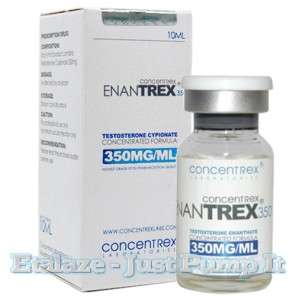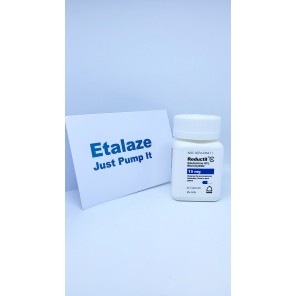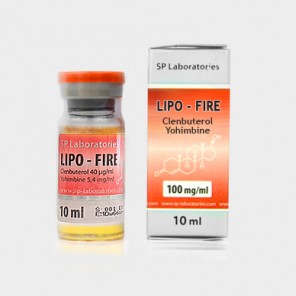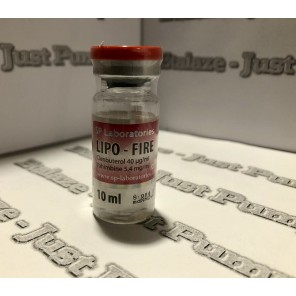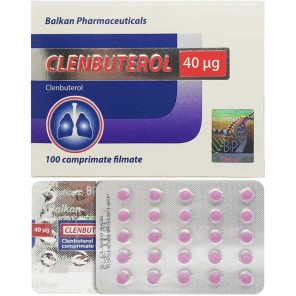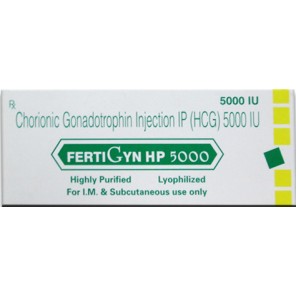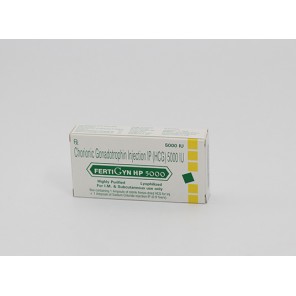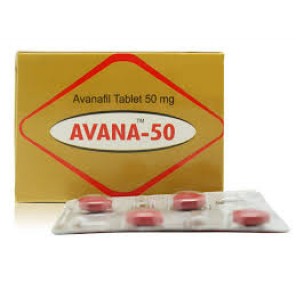Ritalin 10 mg [30 Tabs, Novartis]
![Ritalin 10 mg [30 Tabs, Novartis] Ritalin 10 mg [30 Tabs, Novartis]](https://thairoids.com/image/cache/catalog/01%20ande/ANDE010-1-624x624w.jpg)
- Stock: Out Of Stock
- Brand: Novartis
- Reward Points: 270
- Model: ANDE010-1
- Best prices on the web
- Highest quality products
- Guaranteed delivery
Buy Ritalin 10 mg [30 Tabs, Novartis]
What is Ritalin?
Ritalin (methylphenidate) is a central nervous system stimulant. It affects chemicals in the brain and nerves that contribute to hyperactivity and impulse control.
Ritalin is used to treat attention deficit disorder (ADD), attention deficit hyperactivity disorder (ADHD), and narcolepsy.
Ritalin may also be used for purposes not listed in this medication guide.
Important information
You should not use Ritalin if you have glaucoma, tics or Tourette's syndrome, or severe anxiety, tension, or agitation.
Methylphenidate may be habit-forming, and this medicine is a drug of abuse. Tell your doctor if you have had problems with drug or alcohol abuse.
Stimulants have caused stroke, heart attack, and sudden death in people with high blood pressure, heart disease, or a heart defect.
Do not use Ritalin if you have used an MAO inhibitor in the past 14 days, such as isocarboxazid, linezolid, methylene blue injection, phenelzine, rasagiline, selegiline, or tranylcypromine.
Methylphenidate may cause new or worsening psychosis (unusual thoughts or behavior), especially if you have a history of depression, mental illness, or bipolar disorder.
You may have blood circulation problems that can cause numbness, pain, or discoloration in your fingers or toes.
Call your doctor right away if you have: signs of heart problems - chest pain, feeling light-headed or short of breath; signs of psychosis - paranoia, aggression, new behavior problems, seeing or hearing things that are not real; signs of circulation problems - unexplained wounds on your fingers or toes.
Before taking this medicine
Do not use Ritalin if you have used an MAO inhibitor in the past 14 days. A dangerous drug interaction could occur. MAO inhibitors include isocarboxazid, linezolid, methylene blue injection, phenelzine, rasagiline, selegiline, tranylcypromine, and others.
You should not use Ritalin if you are allergic to methylphenidate, or if you have:
glaucoma;
a personal or family history of tics (muscle twitches) or Tourette's syndrome; or
severe anxiety, tension, or agitation (stimulant medicine can make these symptoms worse).
Stimulants have caused stroke, heart attack, and sudden death in certain people. Tell your doctor if you have:
heart problems or a congenital heart defect;
high blood pressure; or
a family history of heart disease or sudden death.
To make sure Ritalin is safe for you, tell your doctor if you or anyone in your family has ever had:
depression, mental illness, bipolar disorder, psychosis, or suicidal thoughts or actions;
motor tics (muscle twitches) or Tourette's syndrome;
blood circulation problems in the hands or feet;
seizures or epilepsy;
problems with the esophagus, stomach, or intestines;
an abnormal brain wave test (EEG); or
a history of drug or alcohol addiction.
It is not known whether Ritalin will harm an unborn baby. Tell your doctor if you are pregnant or plan to become pregnant.
It is not known whether methylphenidate passes into breast milk or if it could harm a nursing baby. Tell your doctor if you are breast-feeding a baby.
Ritalin is not approved for use by anyone younger than 6 years old.
How should I take Ritalin?
Take Ritalin exactly as prescribed by your doctor. Follow all directions on your prescription label. Your doctor may occasionally change your dose. Do not take Ritalin in larger or smaller amounts or for longer than recommended.
Ritalin may be habit-forming. Never share this medicine with another person, especially someone with a history of drug abuse or addiction. Keep the medication in a place where others cannot get to it. Selling or giving away this medicine is against the law.
Read all patient information, medication guides, and instruction sheets provided to you. Ask your doctor or pharmacist if you have any questions.
To prevent sleep problems, take this medicine in the morning.
Ritalin tablets and Ritalin SR tablets should be taken at least 30 to 45 minutes before a meal. Extended-release Ritalin LA capsules can be taken with or without food. Follow the directions on your medicine label.
Do not crush, chew, or break a sustained-release tablet. Swallow the tablet whole. Breaking the tablet may cause too much of the drug to be released at one time.
To make swallowing easier, you may open the Ritalin LA capsule and sprinkle the medicine into a spoonful of pudding or applesauce. Swallow right away without chewing. Do not save the mixture for later use.
While using Ritalin, your doctor will need to check your progress at regular visits. Tell any doctor who treats you that you are using this medicine.
If you need surgery, tell the surgeon ahead of time that you are using Ritalin. You may need to stop using the medicine for a short time.
Store at room temperature away from moisture and heat.
Keep track of your medicine. Methylphenidate is a drug of abuse and you should be aware if anyone is using your medicine improperly or without a prescription.
Ritalin dosing information
Usual Adult Dose of Ritalin for Attention Deficit Disorder:
Immediate release Ritalin tablets:
Initial Dose: 10 mg orally 2 or 3 times daily, preferably 30 to 45 minutes before breakfast and lunch, and a third dose between 2 and 4 PM, if necessary. For patients who have trouble sleeping at night while receiving methylphenidate, the last dose should be taken before 6 PM.
Maintenance dose: Doses may be increased weekly in increments of 5 to 10 mg up to a maximum of 60 mg per day. In some patients, 10 to 15 mg daily may suffice. For patients who have trouble sleeping at night while receiving methylphenidate, the last dose should be taken before 6 PM.
Sustained release Ritalin SR tablets:
Initial Dose: Methylphenidate is also available as a 10 mg and 20 mg sustained release tablets with a duration of action of approximately 8 hours. If dose of the sustained release tablet corresponds with the titrated dose of methylphenidate regular tablets (taken not more frequently than every 8 hours), then the sustained release tablets may be used instead of the regular tablets.
Maintenance Dose: The dose may be increased in weekly increments of 10 mg, up to a maximum of 60 mg/day, with the first dose taken before breakfast. Tablets should not be crushed or chewed.
Extended release Ritalin LA capsules;
Initial Dose: 20 mg orally once a day in the morning before breakfast.
For patients already receiving methylphenidate:
If switching from immediate release tablets 10 mg twice a day or sustained release tablets 20 mg/day: 20 mg once daily.
If switching from immediate release tablets 15 mg twice a day: 30 mg once daily.
If switching from immediate release tablets 20 mg twice a day or sustained release tablets 40 mg/day: 40 mg once daily.
If switching from immediate release tablets 30 mg twice a day or sustained release tablets 60 mg/day: 60 mg once daily.
Maintenance Dose: Doses may be increased weekly in increments of 10 mg up to a maximum of 60 mg once daily in the morning. For patients unable to swallow the capsule, the contents may be sprinkled on applesauce and administered.sual Adult Dose of Ritalin for Narcolepsy:
Immediate release Ritalin tablets:
Initial Dose: 10 mg orally 2 or 3 times daily, preferably 30 to 45 minutes before meals.
Maintenance dose: Doses may be increased weekly in increments of 5 to 10 mg up to a maximum of 60 mg per day. In some patients, 10 to 15 mg daily may suffice. For patients who have trouble sleeping at night while receiving methylphenidate, the last dose should be taken before 6 PM.
Sustained release Ritalin SR tablets:
Initial Dose: Methylphenidate is also available as a 10 mg and 20 mg sustained release tablets with a duration of action of approximately 8 hours. If dose of the sustained release tablet corresponds with the titrated dose of methylphenidate regular tablets (taken not more frequently than every 8 hours), then the sustained release tablets may be used instead of the regular tablets.
Maintenance Dose: The dose may be increased in weekly increments of 10 mg, up to a maximum of 60 mg/day, with the first dose taken before breakfast. Tablets should not be crushed or chewed.
Usual Pediatric Dose for Attention Deficit Disorder:6 years or older:
Immediate release Ritalin tablets:
Initial Dose: 2.5 to 5 mg orally twice daily, taken 30 to 45 minutes before breakfast and lunch.
Maintenance dose: Doses may be increased weekly in increments of 5 to 10 mg up to a maximum of 60 mg/day in 2 or 3 divided doses. For patients who have trouble sleeping at night while receiving methylphenidate, the last dose should be taken before 6 PM.
Sustained release Ritalin SR tablets:
Initial Dose: Methylphenidate is also available as a 10 mg and 20 mg sustained release tablets with a duration of action of approximately 8 hours. If dose of the sustained release tablet corresponds with the titrated dose of methylphenidate regular tablets (taken not more frequently than every 8 hours), then the sustained release tablets may be used instead of the regular tablets.
Maintenance Dose: The dose may be increased in weekly increments of 10 mg, up to a maximum of 60 mg/day, with the first dose taken before breakfast. Tablets should not be crushed or chewed.Ritalin side effects
Get emergency medical help if you have signs of an allergic reaction to Ritalin:hives; difficulty breathing; swelling of your face, lips, tongue, or throat.
Call your doctor at once if you have:
signs of heart problems - chest pain, trouble breathing, feeling like you might pass out;
signs of psychosis - hallucinations (seeing or hearing things that are not real), new behavior problems, aggression, hostility, paranoia;
signs of circulation problems - numbness, pain, cold feeling, unexplained wounds, or skin color changes (pale, red, or blue appearance) in your fingers or toes;
a seizure (convulsions);
muscle twitches (tics);
changes in your vision; or
penis erection that is painful or lasts 4 hours or longer (rare).
Methylphenidate can affect growth in children. Tell your doctor if your child is not growing at a normal rate while using this medicine.
Common Ritalin side effects may include:
mood changes, feeling nervous or irritable, sleep problems (insomnia);
fast heart rate, increased blood pressure;
loss of appetite, weight loss;
nausea, stomach pain; or
headache.
What other drugs will affect Ritalin?
Ask your doctor before using a stomach acid medicine (including Alka-Seltzer or sodium bicarbonate). Some of these medicines can change the way your body absorbs methylphenidate, and may increase side effects.
Many drugs can interact with methylphenidate. This includes prescription and over-the-counter medicines, vitamins, and herbal products. Not all possible interactions are listed in this medication guide. Tell your doctor about all your current medicines and any medicine you start or stop using.
Add Review
Add

